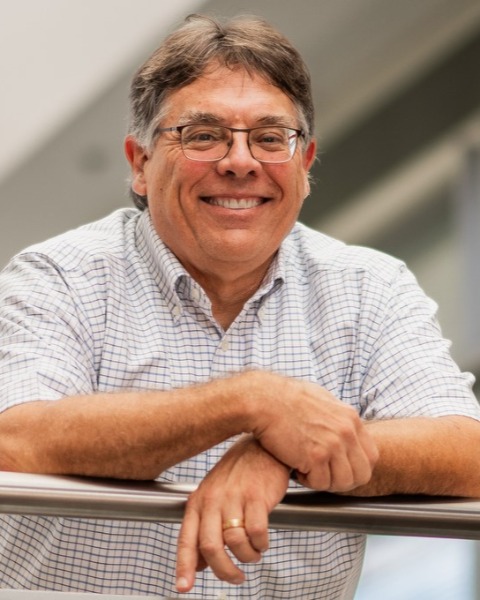
David C. Dayton, PhD
Senior Research Fellow
RTI International
Durham, NC, United States
Dr. David C. Dayton is a Senior Fellow (Chemistry) at RTI International in the Technology Advancement and Commercialization Business Unit. He has 30 years of project management and research experience in biomass thermochemical conversion technology R&D involving biomass combustion, gasification, and pyrolysis. His current research activities include catalytic biomass pyrolysis technology development, biocrude separations and upgrading, synthesis gas conversion, cleanup, and conditioning, and experimental programs relating to biomass thermochemical conversion for biofuels and bioproducts. Through a series of U.S. Department of Energy (DOE)–funded projects, a robust deoxygenation catalyst has been developed. This technology is being scaled up from the benchtop to a 1-ton per day (TPD) integrated pyrolysis and upgrading facility that will be used to optimize the biocrude’s intermediate physical and chemical properties, validate catalyst and process performance, and determine the most effective upgrading conditions for producing gasoline and diesel range hydrocarbons and sustainabile aviation fuel from biomass. These various R&D projects are focused on meeting technical targets to increase the economic competitiveness of thermochemical biomass conversion processes and accelerate the development and deployment of advanced hydrocarbon biofuels technology.
Prior to coming to RTI, Dr. Dayton managed biomass thermochemical conversion projects for the U.S. Department of Energy at the National Renewable Energy Laboratory. Previous R&D activities included fundamental, high-temperature kinetics of thermochemical conversion processes, specifically pyrolysis (devolatilization) and gasification (partial oxidation), as related to the transformation of trace elements (e.g., nitrogen, sulfur, chlorine, potassium) and the formation of tars (high-molecular-weight organics). His previous R&D activities have also included the cleanup and conditioning of biomass-derived synthesis gas, specifically the catalytic steam reforming of biomass gasification tars, to provide a suitable feedstock for the production of renewable liquid fuels and chemicals. These activities were conducted from the bench (30 milligrams per sample) to the pilot scale (30 kilograms per hour). Previous research activities also include alkali metal release and speciation and tar formation and destruction during the combustion and gasification of selected biomass feedstocks and the co-combustion of biomass/coal blends by using direct sampling molecular beam mass spectrometry (MBMS).
A postdoctoral research associate at the U.S. Army Research Laboratory, Aberdeen Proving Ground, MD, he studied the chemcial structure of low pressure premixed flames using advanced spectroscopic and mass spectrometric analysis methods to measure temperature and species concentrations that were used to validate detailed chemcial kinetic reaction mechansims. He received his Ph.D. in Physical Chemistry from the University of North Carolina, Chapel Hill and a B.S. in Chemistry from Dickinson College.
Dr. Dayton has published over 70 technical papers, book chapters, and government reports. He recently co-authored a book entitled “Analytical Methods for Biomass Characterization and Conversion” and has adjunct faculty positions in the Energy and Environmental Systems Department at North Carolina A&T State University and in the Forest Biomaterials Department, College of Natural Resources, North Carolina State University.
Disclosure information not submitted.
Presentation(s):
-
Advanced Analytical Methods for Biofuels and Renewable Energies
Tuesday, April 30, 2024
10:30 AM - 12:00 PM EDT -
Chemical and Physical Properties of Biomass Pyrolysis Liquids
Tuesday, April 30, 2024
10:35 AM - 10:55 AM EDT

.jpg)